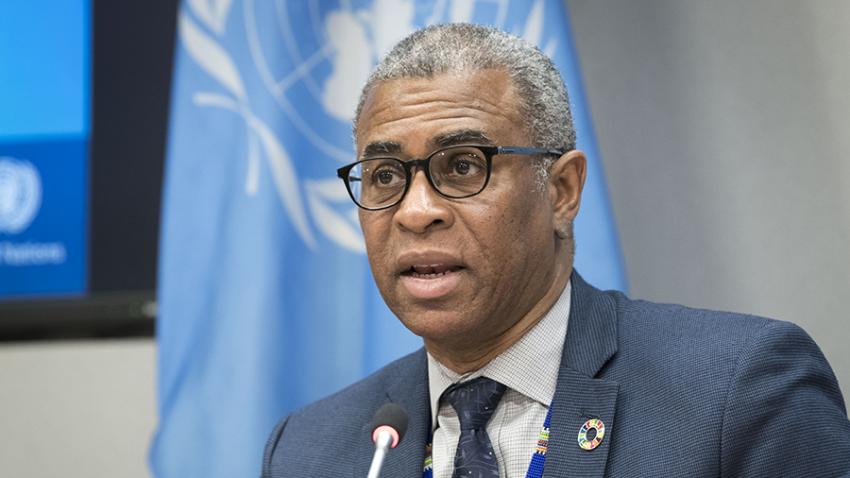Climate catastrophes, a global pandemic, automation of jobs – the interconnected crises unleashing havoc on our world seem to have slipped out of our control and taken a life of their own. But a new report by the UN Economist Network stresses that the five greatest challenges facing humanity are all human-made and can be shaped by our policies. We talk to UN Chief Economist Elliott Harris who has led this analysis by economists in dozens of UN entities.
The new UNEN report identifies five megatrends that will shape our world over the next 75 years. Why these five?
“First of all, each of these five megatrends has a direct link to the 2030 Agenda. Four of them have their “own” SDG – climate change, urbanization, technological innovation and inequalities. The fifth megatrend, demographic developments, features prominently in the targets of several goals. Combined, these megatrends can make or break our efforts to achieve the 2030 Agenda.
Secondly, all of these megatrends are closely interlinked. Each exerts a direct influence on the others, reinforcing their impacts, or slowing or counteracting them.“
And that is the key takeaway from this sweeping research: the fact that none of these megatrends can be regarded in isolation. What are the implications of this finding?
“Our analysis highlights the interlinkages among the megatrends. It means that policies to shape a given megatrend can also influence the other megatrends, possibly generating co-benefits. This is key to designing better policies and prioritizing interventions.
The analysis also allows us to see more clearly how the COVID-19 crisis is impacting various groups differently. For example, the increase in online work because of lockdowns has accelerated the digitalization of the economy and is driving further technological innovation. But not all jobs can be done online, and high-speed access to the Internet is very uneven. This means COVID-19 is accentuating the digital divide and exacerbating inequalities.”
The report calls on policymakers to consciously shape the trends that will shape our world. Is this achievable in the current political climate? And if so, how?
“The COVID-19 crisis is a huge setback, and it endangers the achievement of the SDGs. But if we react to it with enough foresight, we can recover in ways that put the global community back on the path to sustainable development and accelerate our progress. With their courageous and decisive crisis responses, many governments have demonstrated great adaptability and flexibility. This can be harnessed to drive the policy changes that we need to achieve the transformation that the 2030 Agenda demands.
However, not all countries are equally well placed to undertake an effective response. This underscores the need for collective and coordinated support from the global community. With the SDGs as our blueprint for the recovery, we can reimagine many of our institutions, economic and social structures, behaviours and activities to orient them decisively towards sustainable development.”
For more information:
Report of the UN Economist Network for the UN 75th Anniversary: Shaping the Trends of Our Time

